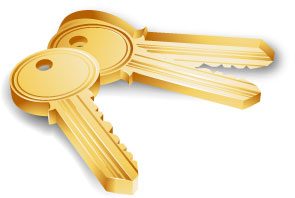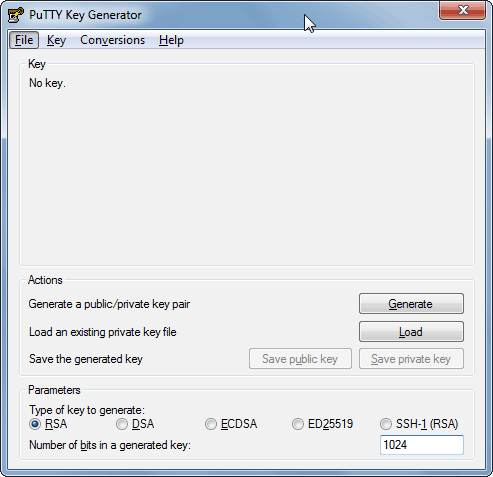Generate Ssh Public Key Macos
Posted By admin On 13.12.20Ssh-keygen is a tool for creating new authentication key pairs for SSH. Such key pairs are used for automating logins, single sign-on, and for authenticating hosts. SSH Keys and Public Key Authentication. The SSH protocol uses public key cryptography for authenticating hosts and users. Jun 26, 2019 ssh-keygen -b 4096 The -b flag instructs ssh-keygen to increase the number of bits used to generate the key pair, and is suggested for additional security. Press Enter to use the default names idrsa and idrsa.pub in the /home/yourusername/.ssh directory before entering your passphrase. Generating public/private rsa key pair. Enter file in which to save the key (/home/yourusername/.ssh/id.
It is possible to configure your Pi to allow your computer to access it without providing a password each time you try to connect. To do this you need to generate an SSH key: /windows-server-2008-standard-key-generator.html.
Check for existing SSH keys
First, check whether there are already keys on the computer you are using to connect to the Raspberry Pi:

If you see files named id_rsa.pub or id_dsa.pub you have keys set up already, so you can skip the generating keys step (or delete these files with rm id* and make new keys).
Generate new SSH keys
To generate new SSH keys enter the following command:
Upon entering this command, you'll be asked where to save the key. We suggest you save it in the default location (/home/pi/.ssh/id_rsa) by just hitting Enter.
You'll also be asked to enter a passphrase. This is extra security which will make the key unusable without your passphrase, so if someone else copied your key, they could not impersonate you to gain access. If you choose to use a passphrase, type it here and press Enter, then type it again when prompted. Leave the field empty for no passphrase.
Now look inside your .ssh directory:
and you should see the files id_rsa and id_rsa.pub:
Generate Ssh Public Key Mac Os 2017
The id_rsa file is your private key. Keep this on your computer.
The id_rsa.pub file is your public key. This is what you share with machines you want to connect to. When the machine you try to connect to matches up your public and private key, it will allow you to connect.
Take a look at your public key to see what it looks like:
It should be in the form:
Copy your public key to your Raspberry Pi
To copy your public key to your Raspberry Pi, use the following command, on the computer you will be connecting from, to append the public key to your authorized_keys file on the Pi, sending it over SSH:
Note that this time you will have to authenticate with your password. Rise of nations gold edition cd key generator.
Alternatively, if the ssh-copy-id is not available on your system, you can copy the file manually over SSH:
If you see the message ssh: connect to host <IP-ADDRESS> port 22: Connection refused and you know the IP-ADDRESS is correct, then you probably haven't enabled SSH on your Pi. Run sudo raspi-config in the Pi's terminal window, enable SSH, and then try to copy the files again.
Now try ssh <USER>@<IP-ADDRESS> and you should connect without a password prompt.
If you see a message 'Agent admitted failure to sign using the key' then add your RSA or DSA identities to the authentication agent ssh-agent then execute the following command:
Openssh Generate Public Key From Private Key
If this did not work, delete your keys with rm ~/.ssh/id* and follow the instructions again.
Generate Ssh Public Key Macos Free
You can also send files over SSH using the scp command (secure copy). See the SCP guide for more information.
Let macOS store your passphrase so you don't have to enter it each time
If you're using macOS and after verifying that your new key allows you to connect, you can optionally choose to store the passphrase for your key in the macOS Keychain. This will make it so that you don't have to enter the passphrase each time you connect to your Pi.
Ssh Public Key Windows

Generate Ssh Key Macos
Run the following command to store it in your keychain: